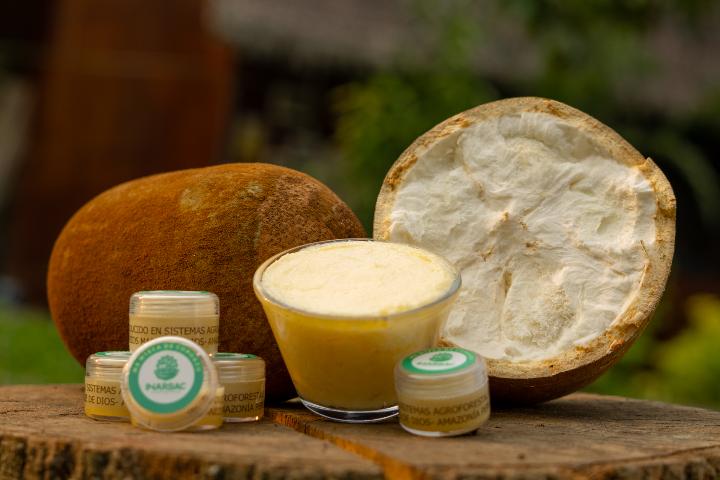Cupuacu Butter vs Shea Butter: Which is Better for Your Skin?
In the world of skincare, Cupuaçu butter and Shea butter stand out as two highly valued natural ingredients. Both are known for their moisturizing and nourishing properties, but they have unique characteristics that can benefit different skin types. In this article, we will explore the benefits of each and help you decide which one is best for you.
Benefits of Cupuaçu Butter
Cupuaçu butter, sourced from the Amazon rainforest, is rich in fatty acids and antioxidants, making it an excellent moisturizer for dry and cracked skin. Its ability to deeply penetrate the skin and provide long-lasting hydration makes it ideal for people with dryness issues. Additionally, its emollient effect helps to soften the skin, leaving it looking healthy and radiant.
Nutritional Benefits
Both ingredients are rich in essential nutrients that help deeply hydrate and nourish the skin.
Moisturizing Properties
Cupuaçu butter has superior moisturizing properties, while Shea butter provides long-lasting hydration.
Versatile Applications
Both ingredients can be used in various skincare product formulations, from creams to balms.
Anti-inflammatory effects
Shea butter is known for its anti-inflammatory properties that help soothe irritated skin, while Cupuaçu butter also offers similar relief.
Cupuaçu butter, derived from the fruit of the Cupuaçu tree, is known for its ability to deeply hydrate the skin. It contains essential fatty acids like oleic acid and linoleic acid, which help strengthen the skin barrier and prevent moisture loss. Additionally, its high antioxidant content fights free radicals, promoting healthier and more radiant skin. On the other hand, Shea butter, extracted from the nuts of the Shea tree, is renowned for its emollient properties and its ability to soften and nourish the skin. Its rich composition of vitamins A, E, and F aids in cell regeneration and helps alleviate conditions like dryness or irritation, making it a perfect ally for sensitive skin.

Both butters offer excellent benefits, but their use may vary depending on skin type and specific needs. Cupuaçu butter is ideal for those seeking deep hydration, especially in dry climates, as its lightweight formula absorbs quickly without leaving a greasy feel. In contrast, Shea butter is perfect for dry and mature skin, providing intense, long-lasting hydration. Its denser texture is also excellent for use on areas prone to extreme dryness, such as elbows and knees. The choice between these two products will depend on personal preferences and how your skin responds to each one.
In conclusion, both Cupuaçu butter and Shea butter have extraordinary properties that can benefit skin health. Cupuaçu butter stands out for its moisturizing ability and quick absorption, making it an excellent option for daily care, while Shea butter is ideal for more intensive and reparative treatments. Assessing your skin’s needs and the nature of each product will help you decide which is the best option for you. Often, combining both can provide an even more comprehensive and effective skincare regimen.
Origin of Ingredients
Cupuaçu butter is a product derived from the seeds of the Cupuaçu tree, native to the Amazon region. On the other hand, Shea butter comes from the nut of the Shea tree, primarily found in Africa. Both ingredients are natural, but their geographical origins grant them unique properties and various benefits for the skin.
Moisturizing Properties
Both butters are known for their strong moisturizing properties. Cupuaçu butter contains high levels of fatty acids that help retain moisture, while Shea butter is rich in vitamins A and E, providing deep and effective hydration, helping to combat dryness, and improving skin texture.
Antioxidant Properties
Shea butter is renowned for its antioxidant content, which protects the skin from damage caused by free radicals. Cupuaçu butter also offers antioxidant benefits but focuses more on cell regeneration, helping to maintain skin elasticity and reduce signs of aging.
Soothing and Restorative Effects
Shea butter is famous for its soothing properties and its ability to relieve skin irritations and conditions. In contrast, Cupuaçu butter has a reparative effect that aids in the recovery of damaged or irritated skin, making it ideal for sensitive skin.
Uses in Skin Care
Both ingredients are versatile in skincare. Cupuaçu butter can be used in creams, lotions, and lip balms, while Shea butter is popular in moisturizers and ointments. The choice between one or the other will depend on the skin type and the specific needs of each user.
Cupuaçu butter, derived from the fruit of the Cupuaçu tree, is highly valued in skincare for its ability to deeply hydrate and nourish. Rich in fatty acids, antioxidants, and vitamins, this butter provides intense hydration, leaving the skin soft and elastic. Additionally, its lightweight texture is quickly absorbed, making it ideal for those seeking a product that doesn't leave a greasy feel on the skin. It can also help soothe and reduce inflammation, making it an excellent choice for sensitive or irritated skin.
Shea butter is renowned for its emollient and moisturizing properties, making it a staple ingredient in skincare. Extracted from the nuts of the Shea tree, it is rich in vitamins A, E, and F, which help repair and protect the skin. Its creamy consistency allows for easy application and absorption, providing long-lasting hydration. Additionally, it acts as a potent antioxidant, protecting the skin from environmental damage and premature aging. Shea butter is also excellent for relieving conditions such as dry skin and eczema.
Both Cupuaçu butter and Shea butter offer exceptional skincare benefits, but the choice depends on individual needs. If you're looking for lightweight hydration and quick absorption, Cupuaçu butter may be the best option. However, if your skin requires deep hydration and repair, Shea butter might be more suitable. Consider your skin type, the texture you prefer, and any specific conditions to choose the product that best suits your needs.


